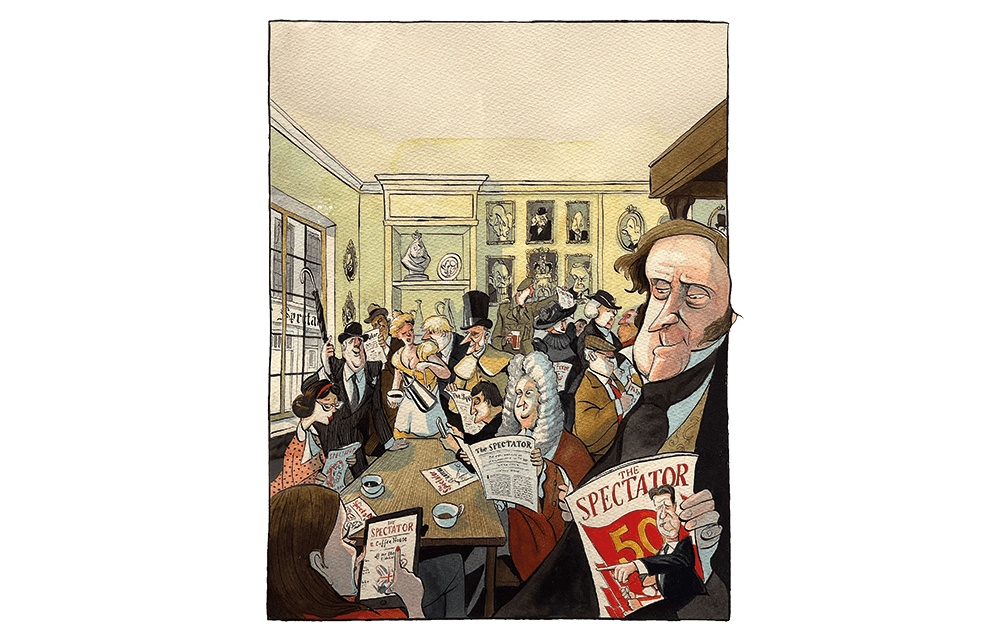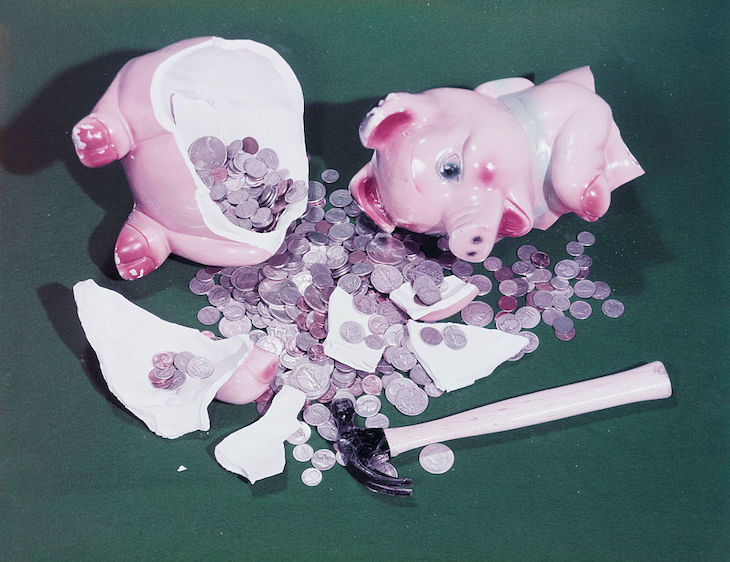Fraser Nelson has narrated this article for you to listen to.
In the late summer of 2009, Andrew Neil invited me to his villa in the Côte d’Azur but didn’t say why. I was mystified. I was then political editor of The Spectator and in eight years of working closely with Andrew, the then chairman, he’d never hinted that he saw me as an editor. I certainly didn’t see myself as one. I was just a writer who knew nothing about how magazines were made. I’d never written a headline and didn’t even have a desk in the office. I wouldn’t know where to start.
We put a notice on our fridge asking staff to make sure that two bottles of Pol Roger were chilling at all times
But when Andrew offered me the job, I heard myself saying yes. Did I think I was good enough? Not even close. But I felt that if I said no, I’d spend the rest of my life wondering what would have happened if I’d had the courage to give it a go. Worthy or not, I was being offered what Boris Johnson had rightly described as the best job in London. Andrew saw in me something that I didn’t see in myself – and I thought I’d find out if he was right.
Fifteen years and 786 editions later, I like to think it worked out OK. The magazine, then valued at £20 million, has just sold for £100 million. Our subscriptions have more than doubled. But in a very real sense, I know this was not my achievement. When making handover notes for my successor, Michael Gove, I’ve tried to explain how we got here and the system we created. In the past 20 years the job of editor has changed, utterly.
No editor of The Spectator needs to worry about political direction. The magazine knows its own mind and always has done. Our boardroom in 22 Old Queen Street has back issues going back to 1828. You can take any issue out at random and see the radical-liberal principles at work in the battles we fought: for political reform, free speech and free trade. We backed decriminalisation of homosexuality a decade before it happened. Our allegiance is not to any political tribe but to elegance of expression, independence of opinion and originality of thought.
And to art and humour. I suspect I’ll look back on my editorship as the period that overlapped with the work of Morten Morland, our cover artist and – for my money – the greatest illustrator this country has seen since Gillray. His cover illustrations literally paper the walls of our main editorial office, giving a more eloquent account of our times than any history book could. Cabinet members would beg me to commission a ‘good’ Morland of them (we never did). He saw through them and they knew it.
When The Spectator succumbs to tribalist temptation, it is most at risk. We were the only weekly to back Brexit (as it wasn’t then called) in the 1975 referendum. At the time, the magazine never shut up about that and it fell into the snare of trying to give ‘thought leadership to the right’. Alexander Chancellor saved the magazine by almost entirely reconstructing it. My first act as editor was to have lunch with him and ask him how he did it. He told me that he saw it as a restoration, not a reinvention, and pointed me to the original Spectator of 1711.
I immersed myself in the Addison and Steele project, to try to understand why reprints of these essays were read in every educated home for generations, doing so much to shape English language and culture. Chancellor’s advice was to make sure the DNA of the 1711 Spectator was applied to everything new we engaged in, and that everyone who joined The Spectator understood what the magazine is and isn’t about.
Curating this culture is the editor’s job. Charles Moore worked under Chancellor and puts much of his success down to making the office ‘an extraordinarily happy atmosphere in which to work and – so – a paper that people enjoyed writing for’; the result was that ‘people enjoyed reading it’. It would have been fatal to move us to a soulless office block. Having a Spectator home – whether in Gower Street, Doughty Street or Old Queen Street – has been fundamental to our success.
As has our possession of a large wine fridge. While some newspapers put a zero-alcohol policy in place, we put a notice on our fridge asking staff to make sure that two bottles of Pol Roger were chilling at all times. My office has a well-stocked whisky cabinet and I judged our general success by the speed with which that whisky mysteriously evaporated. An article about us in the New York Times had a quote that summed things up well: ‘It’s a very serious professional operation pretending to be a bunch of champagne dilettantes.’
In adapting to changing technology, The Spectator, a 196-year-old magazine, developed the culture of a start-up. With the introduction of blogs, podcasts, videos, newsletters, events and all else, we were able to bring The Spectator to people not in the habit of reading magazines.

The editor is responsible and accountable for every word, dot and comma that is published under The Spectator’s masthead – rightly so. I’ve been interviewed by the police and even ended up in a courtroom over Rod Liddle’s magnificent column. And I noticed that the truer his articles are, the more trouble they cause. Also: only real villains sue. I once published an article that confused a blameless accountant with a jihadi of the same name, accusing him of leading a double life. The gentleman in question settled for a simple apology and didn’t demand a penny of damages. This episode is included in ‘Fraser’s Greatest Mistakes’, a training manual for new staff.
Every editor has a different style. I loathe working from home, hate bank holidays and think the tangential conversations are the most important. Boris Johnson was less guilty of presenteeism. He embodied the magazine’s Merrie England vibe, and was a huge success.
But editors need to be ready for tussles and know why they’re worth fighting. Readers will have, in Michael Gove, an editor who fundamentally understands and loves The Spectator’s character and is ready to fight for it. In this strangely censorious age, the magazine needs that perhaps most of all.








Comments